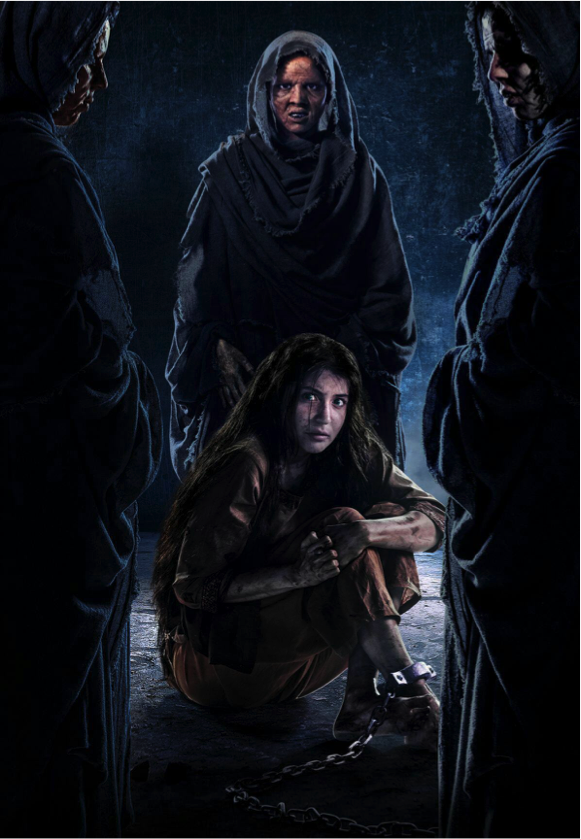By Pranav Joshi
“Flickering lights permeating a sense of foreboding in grimy, dark corridors. An unexplained noise, threatening to choke the life out of an unsuspecting victim totally alone, even as fear becomes the only lingering feeling.”
A premise which although, has suffered repetition over the years in every other film dealing with anything remotely paranormal, can still reveal those obscure shades of our character and spirit we keep locked away from the world. On the other hand, it can be stripped off of its primal, extra-dimensional pull and be reduced to another empty phrase, in a visual language heavy on punctuation but sparse in meaning.
In debutant Prosit Roy’s intermittently heartfelt yet imperfect horror film, an obtrusive dependence on traditional scares and over eagerness for grit stem the effectiveness of a potentially striking narrative.
Arnab (a brilliant Parambrata Chatterjee), a lonely, self-contained introvert, with a twist of fate finds his life intertwined with a near-feral woman Rukhsana (Anushka Sharma, a revelation) of mysterious origin. Invariably allowing her into his solitary residence for a few days to absolve himself of the guilt of a horrific accident which leaves her motherless, Arnab cannot help but notice Rukhsana’s absurd, ominous behavior and increasingly macabre paranoia. A larger, more sinister conspiracy unravels when Professor Qasim (Rajat Kapoor in a menacing, albeit shoddily written role) arrives with his band of extremists who profess to wipe out a devil worshipping cult which allows evil to spread through female witches impregnating themselves. Arnab’s interior and exterior life is soon thrown into disarray as Rukhsana’s barely human eccentricities disappear to reveal a dormant beast within.
With the plot progressing at a slow pace, the film often seeks to bank on atmosphere and the interior spaces inhabited by its principal characters. What it gets somewhat right by way of characterization of the principal cast, the plot uses the supporting cast either as facilitators of contrivance or jerky twists. Debutant Ritabhari Chakraborty as Piyali is stuck in an uninspiring love triangle even when Rukhsana makes her obsessions with Arnab overt, only to come of age towards the end. On the other hand, Dibyendu Bhattacharya is largely underutilized as Sahu, Qasim’s assistant and an impulsive fanatic himself.
At the heart of the bursting narrative though is an unlikely relationship defined by an earnestness seldom found in Bollywood’s delinquent approach towards horror as a genre. Clearly inspired by the fairytale of tolerance and empathy, Beauty & The Beast, the compounded effect of the film’s least ambitious segments wins over its most weakest traits. Though there is no palace to be found, Sharma’s Rukhsana, as a self-imploding, violent demon is torn between the curse she is destined to perpetrate and her increasingly heightened emotions for Arnab. Unconditionally recognising her as a fellow human nursing a wounded psyche, Arnab even puts his own life and a nearly fixed marriage on hold while he helps her cope with her vulnerabilities. And this humble setting of two lonely beings reaching out in unexpected ways – from applying ointment on bloodied feet and using nail cutters to watching cartoons – almost becomes the crux of the film. It hints at the exploration of layered arcs of duality, co-dependence, alienation, affection, atonement and possible redemption.
A major flaw in the writing (Abhishek Banerjee and Anvita Dutt are co-credited) is that there is an officious tendency to elaborate upon larger myths and supernatural folklore by forsaking ambiguity undermines the potential strengths of the film. Unfailingly morbid tableaus of gratuitous violence and poorly conceived jump scares too hardly do justice to grimy, dark alleys, dimly lit morgues and rickety buildings in which most of the action takes place. Cinematographer Jishnu Bhattacharjee attempts to evoke dread in quite a few aptly lit scenes, but an unrelenting, poorly designed background score robs the visuals of their intended urgency. The hasty release of tension in many a scene invariably condemn the rest of the film to be fragments of one lackluster interlude threatening, but thankfully never succeeding to eclipse the real fairytale – the possibility of Arnab and half-human Rukhsana spending a lifetime together.
Ultimately the film remains a well acted albeit underwhelming journey, flaunting its daring when least required and yet managing to cling onto its central character’s perception of the world and her purpose in it. The various physical, psychological and emotional tribulations she faces lead to a climax which could have been much more intense and harrowing, if the film would have eschewed clunky exposition and chosen restraint, genuine mystery and ambiguity.
For a powerful question, is raised towards the end – “What is more satisfactory? Easily purging the evil within us with indiscriminate brutality or taking an arduous path of self-discovery, beset with mistrust and paranoia?
Insisting on answering these questions itself, the oddly titled Pari – Not A Fairytale, fails to rid itself of its own demons.







Leave A Comment
You must be logged in to post a comment.